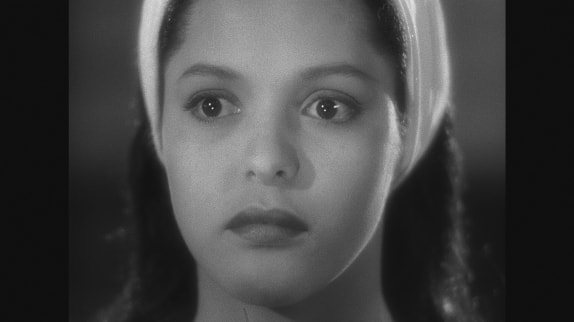Michael Gordon presents a new chamber version of his opera Acquanetta for three sopranos, tenor, bass, female choir, and amplified chamber ensemble at the PROTOTYPE Festival in New York next week. With a libretto by Deborah Artman, the opera deconstructs the spirit of the 1940s horror movie to tell the story of Mildred Davenport, also known as both Acquanetta and the “Venezuelan Volcano,” an African-American B-movie starlet. She was Universal Pictures' first female monster in the 1943 cult horror flick Captive Wild Woman, the story of a mad scientist who turns an ape into a woman. Acquanetta recreated her identity multiple times, and ultimately vanished from Hollywood under mysterious circumstances. Gordon discovered the story when he read her obituary in The New York Times.
Gordon says, “Acquanetta's obituary caught my imagination. I liked her name—Acquanetta had undergone identity transformations on her path to stardom. Then she suddenly vanished. Librettist Deborah Artman and I started to sleuth. This was before Wikipedia—there was no information online. People were guarded, but they hinted that there was more to Acquanetta's story than was known. In Captive Wild Woman, her blockbuster hit, a mad doctor turns an ape into a woman. The woman is Acquanetta and she doesn't say a word throughout the entire movie. This three- minute scene seemed to be the perfect model on which to build the opera. Each actor in the scene was a personality in their own right. Even the Ape, whose career consisted of playing monsters in B-movies, had a story to tell. The entire opera is a look at that three-minute scene, a look into the private thoughts of the actors playing the roles.”
This chamber version, commissioned by Beth Morrison Projects, produced in association with Bang on a Can and Trinity Church Wall Street, and presented at the Gelsey Kirkland Arts Center, is the first production of the piece since the earlier version in 2005 in Germany. The characters are the Doctor, the Ape, the Brainy Woman (who gives her brain to the experiment), the Director, and Acquanetta herself. Each character speaks both as the film's characters and as the actors playing their parts for a camera that manipulates who they are. As Anthony Tommasini of The New York Times said of the original, “The opera turns the story of that campy film's star into a somberly ritualistic meditation on public versus private identities.”
When Acquanetta premiered in grand opera format, the press in Aachen was equally enthusiastic. "The theatergoer who is prepared for a transposition of familiar elements into a new conception will hardly be able to pull himself away from the entertaining density of Acquanetta.... Without ever losing inner momentum, the musicians of the orchestra plumb the contrasting depths of meditative calm and powerful energy with precision and technically based self-confidence," said Brigitte Kempen, Aachener Nachrichten/Aachener Zeitung, while Hanns Mänhardt of Super Sonntag called it "A fascinating experience of modern psychological theater."
Acquanetta
January 9 – 13 at 7:30pm
January 14 at 6 pm
Gelsey Kirkland Arts Center
Brooklyn, NY

 RSS Feed
RSS Feed
